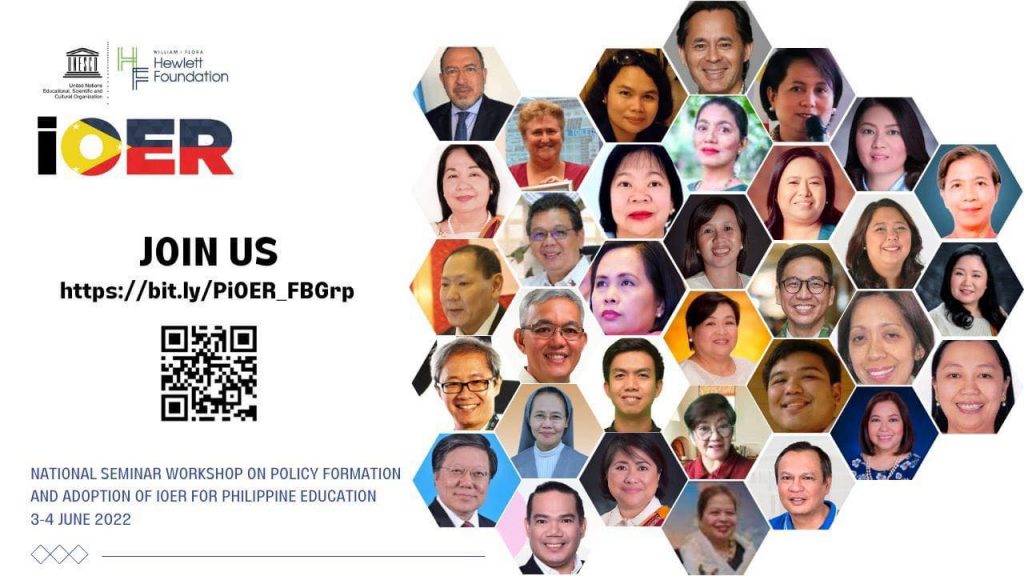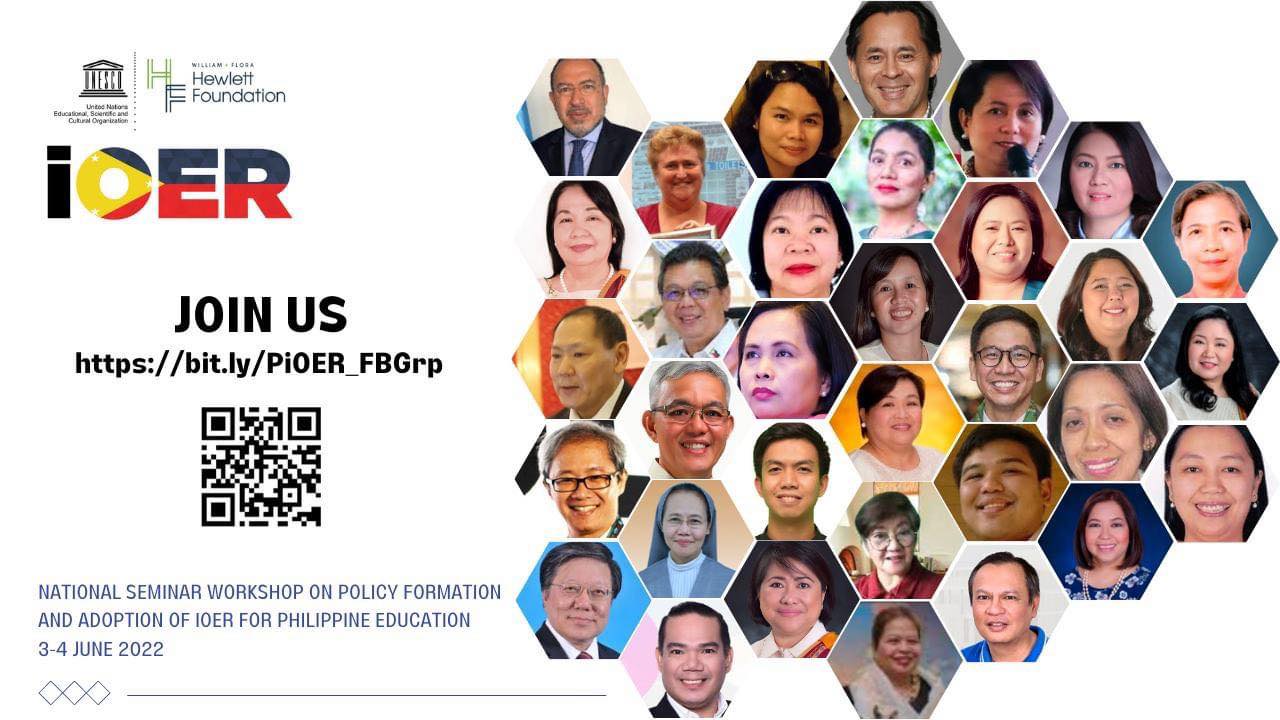
SU joins UNESCO workshop to boost inclusive education in the country
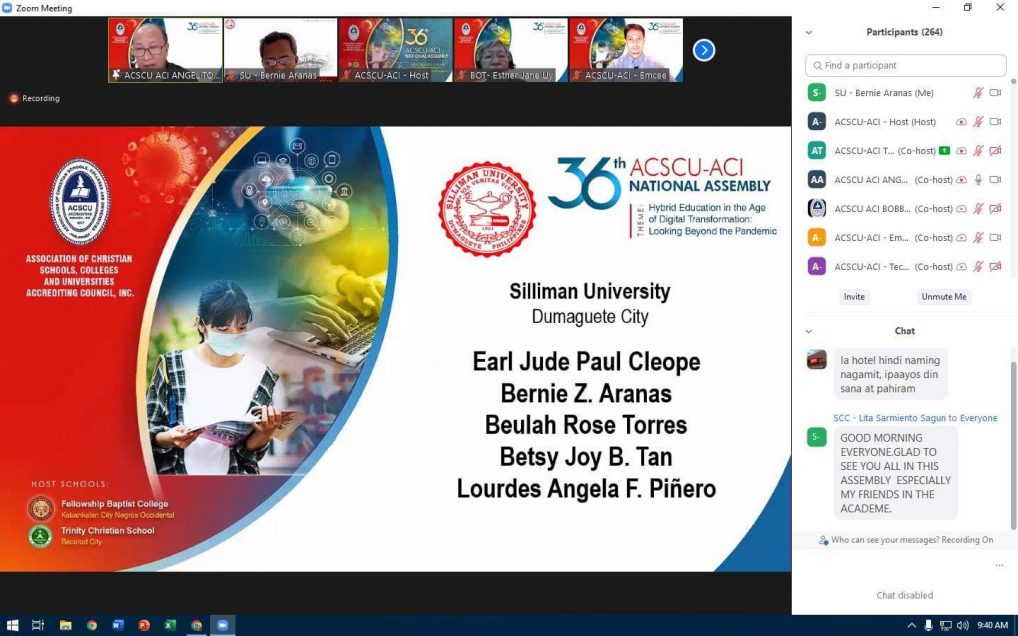
Silliman University (SU), one of UNESCO’s core partners, participated in the National Seminar Workshop on Policy Formation and Adoption of inclusive Open Educational Resources (iOER) for Philippine Education, June 3-4, 2022 via Zoom.
More than 200 educational leaders across the country gathered virtually to learn how to create policies and discuss how to promote equitable access and inclusive education for all in the context of online distance learning.
Among the highlights of the workshop were the presentation on “iOER in the Philippines: Post Pandemic and Beyond” by Dr. Melinda Bandalaria, University of the Philippines-Open University chancellor and International Council for Open and Distance Education (ICDE) ambassador for OER; and a breakout discussion on “Inclusive Open Educational Resources to Promote Equitable Access to Education for All.” Dr. Beulah Rose R. Torres, SU Office of Instruction director, was one of the facilitators for the discussion.
UNESCO defines Open Educational Resources (OER) as learning, teaching and research materials in any format and medium that are free to access, usually utilizing technology, and can be re-used, re-purposed, adapted, and redistributed by others because the materials belong to the public domain or are under an open license.
iOER, on the other hand, incorporates assistive technology for learners with disabilities and individuals coming from marginalized or disadvantaged groups.
The development of iOER is based on UNESCO’s “Learning for All: Guidelines of the Inclusion of Learners with Disabilities in Open and Distance Learning” and the Joint Circular on the Adoption of OER Policy in the Philippines by the Department Of Education (DepEd), the Technical Education And Skills Development Authority (TESDA), the Commission on Higher Education (CHED), and the University of the Philippines Open University (UPOU).
Torres shared that the rapid prototyping of OER repositories (ROER) was one of the solutions of governments and educational entities to continue education and foster inclusive access to education for all during the pandemic.
ROERs serve as portals for access, knowledge sharing, collaboration, and capacity building.
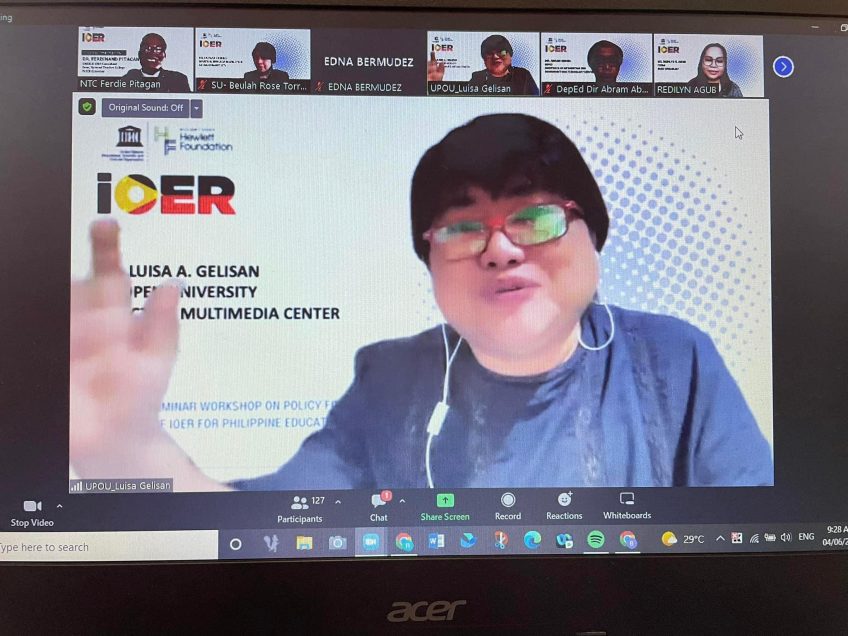
Prof. Luisa A. Gelisan, UPOU, Director, UPOU Multimedia Center
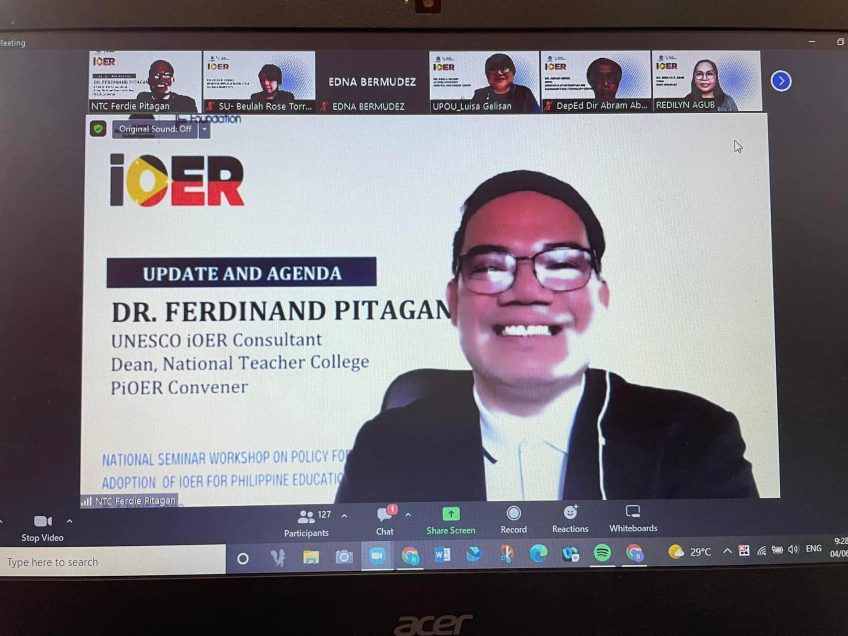
Dr. Ferdinand B. Pitagan, UNESCO iOER Consultant and Dean, School Teacher Education, National Teacher College
